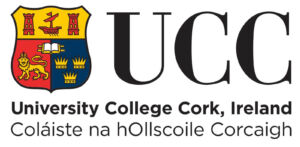MA in Museum Studies
Key Points
A one-year taught master’s degree (NFQ level 9), offered full-time through the Department of Archeology at University College Cork. The aim is to provide extensive academic and professional training in all aspects of museum design, management and education, encouraging students to critically reflect on the relevance of these institutions in the contemporary world. This master’s degree is designed for those who wish to enter the museum or heritage center profession in Ireland or abroad, or who wish to undertake doctoral research in museology and related fields. The course provides a balance of theory and practice for students from a variety of academic backgrounds, with an emphasis on graduates of archeology and history, and other closely related humanities and social science disciplines. The master’s program is made up of taught courses.
Program Structure
A 90-credit program comprised of taught modules (25 credits), two internships (20 credits), a museum exhibition (10 credits), and a research thesis (35 credits).
Course practices
The master classes take place on Mondays and Tuesdays (except holidays) for six months, from October to March, with an average of six teaching hours each school week. Students will attend additional research trainings, workshops, and a series of day trips organized on different dates. The Archeology Department will organize all internships for students. The internships are unpaid and the costs of participation in terms of travel and accommodation are borne by the student, and will vary according to the location of the museum in question.
Evaluation
The taught modules are examined through continuous assessment, using a combination of class tests, presentations, essays, and projects. Job placements are assessed using a placement report binder, while the dissertation requires the submission of a 20,000 word written dissertation.
Who teaches this course
The master’s coordinators are Dr. Griffin Murray and Mr. John Sheehan (Department of Archeology), who teach the course together with Dr. Colin Rynne (Department of Archeology) and Dr. Karena Morton, as well as other National Museum of Ireland staff and several invited speakers
Why choose this course
This title represents the only museum training course offered by a tertiary institution in the Republic of Ireland. There is considerable activity in the sector, with over 40,000 members from 141 countries joining the International Council of Museums. In Ireland alone there are some 460 museums and heritage centers registered by the Irish Museum Associations. The diversity of museums at the international, national, regional / provincial and local levels creates a demand for training and viable employment prospects. This Master’s course will allow students to develop their knowledge and understanding of museum history, theory and practice, and will prepare them for future employment in this sector. It will also support the museum profession through initial training and ongoing professional development of existing staff.
Career opportunities
This program supports an internationally recognized profession, which has a strategic role in state policy on cultural heritage and tourism. Graduates will acquire a critical and systematic understanding of museum theory and practice. They will have gained direct experience of contemporary museum practices, procedures and policies, and will apply a critical awareness of current issues in the field (including professional ethics) to best professional practice. At the applied level, the student will acquire an awareness of everything that goes into the design and management of modern museums.
Graduates of this program work in the museum and heritage sector in Ireland, Great Britain, Europe, Canada, the United States and the Middle East. They work in Management, Education, Conservation and Administration of Museums.
Admission requirements
English requirements
English requirements
All graduate applicants whose first language is not English must provide evidence of English language proficiency. Certain tests (eg, IELTS, TOEFL, and Pearson PTE) have a three-year time limit on their validity and will apply. English language tests must be taken no more than three years prior to the start of a program.
Please note that Secure English Language Test (SELT) scores must be obtained in a single session of the corresponding qualification (for example, IELTS and TOEFL). We will not accept a combination of individual component scores from multiple tests.
Applicants who are nationals of a country that, according to the UCC, is predominantly English-speaking, or who have a degree or equivalent qualification that was taught in a country that is considered predominantly English-speaking, will normally be assumed to have met the language requirements of the UCC. However, in some circumstances, applicants may be required to present evidence of an English language qualification to satisfy the college program entry requirements.
Request your quote
An advisor will contact you by phone and email within the following hours


